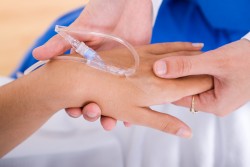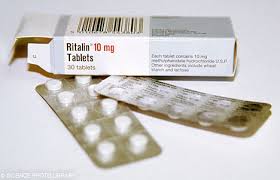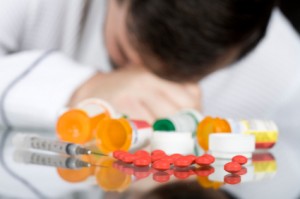Supportive Treatments for Acute Stimulant Detox
Unlike many other drugs, there is no direct treatment for acute stimulant detoxification. In previous years, patients were left to suffer through the worst of the withdrawal until many doctors started using supportive treatments and palliative care.
According to Medscape, there are a variety of supportive treatments that are useful in helping someone who is in acute stimulant detox. If you are in acute stimulant withdrawal, the hospital will use supportive care to help you through the worst of it.
Gastric Lavage
The hospital might do a gastric lavage if you took the stimulant orally. In this procedure they use activated charcoal to neutralize any of the stimulants left in your stomach or intestines. If you are awake they ask you to drink a mixture of the charcoal and water.
If you are unconscious or semiconscious they use a tube to insert the charcoal into your digestive system. Although this is an unpleasant experience it also will stop any more of the stimulant from reaching your bloodstream and poisoning you further.
Decreased Stimulation

Intravenous fluids will likely be given in order to keep the patient hydrated.
Since most people on stimulants or in acute withdrawal suffer from anxiety, agitation, and paranoia, a hospital or treatment center will put you in a quiet room away from loud noises and other disturbances.
If you are in acute withdrawal or suffering from stimulant induced psychiatric issues it is important to seek help now. Call 800-605-6597 Who Answers?, we can direct you to the nearest clinic that can help you through the withdrawal and into addiction treatment.
Intravenous Fluids
One of the first things a treatment center or hospital will do is give intravenous fluids in order to rehydrate your body. Stimulants almost always dehydrate you and restoring hydration prevents:
- stroke
- heart failure
- severe cramping
- respiratory failure
- rapid heart rate
- dangerously high blood pressure
They normally give you something nicknamed a banana bag. This is basically saline solution mixed with potassium and other electrolytes to restore the body’s electrolyte balance and hopefully stave off any of the nastier effects of dehydration.
Supportive Medications
To counteract some of the psychiatric symptoms of doctors may feel the need to give you medications to help you remain calm and to stop developing psychosis. Some of the medications they give are:
- Antianxiety Medications – these medications reduce anxiety, paranoia, and sadness. They work almost immediately, particularly when given through and IV.
- Antidepressants – these are more to get you started on the drug before the depressive symptoms of stimulant withdrawal start.
- Neuroleptics – these are a specific class of drugs that help to prevent psychosis. They will also abate stimulant induced psychosis when it is already apparent that you are suffering from it.
Monitoring for Additional Cardiac and Respiratory Symptoms
Most of what an acute treatment center does when it comes to the first stages of stimulant withdrawal is to stabilize and monitor you until you are out of the acute phase. This is the most dangerous phase of withdrawal.
If you find yourself in the acute stages of stimulant withdrawal, you need help. A lot can go wrong and relapse is the least of your problems. We can help you find the treatment center you need to get through the withdrawal safely, all you have to do is call 800-605-6597 Who Answers?.



